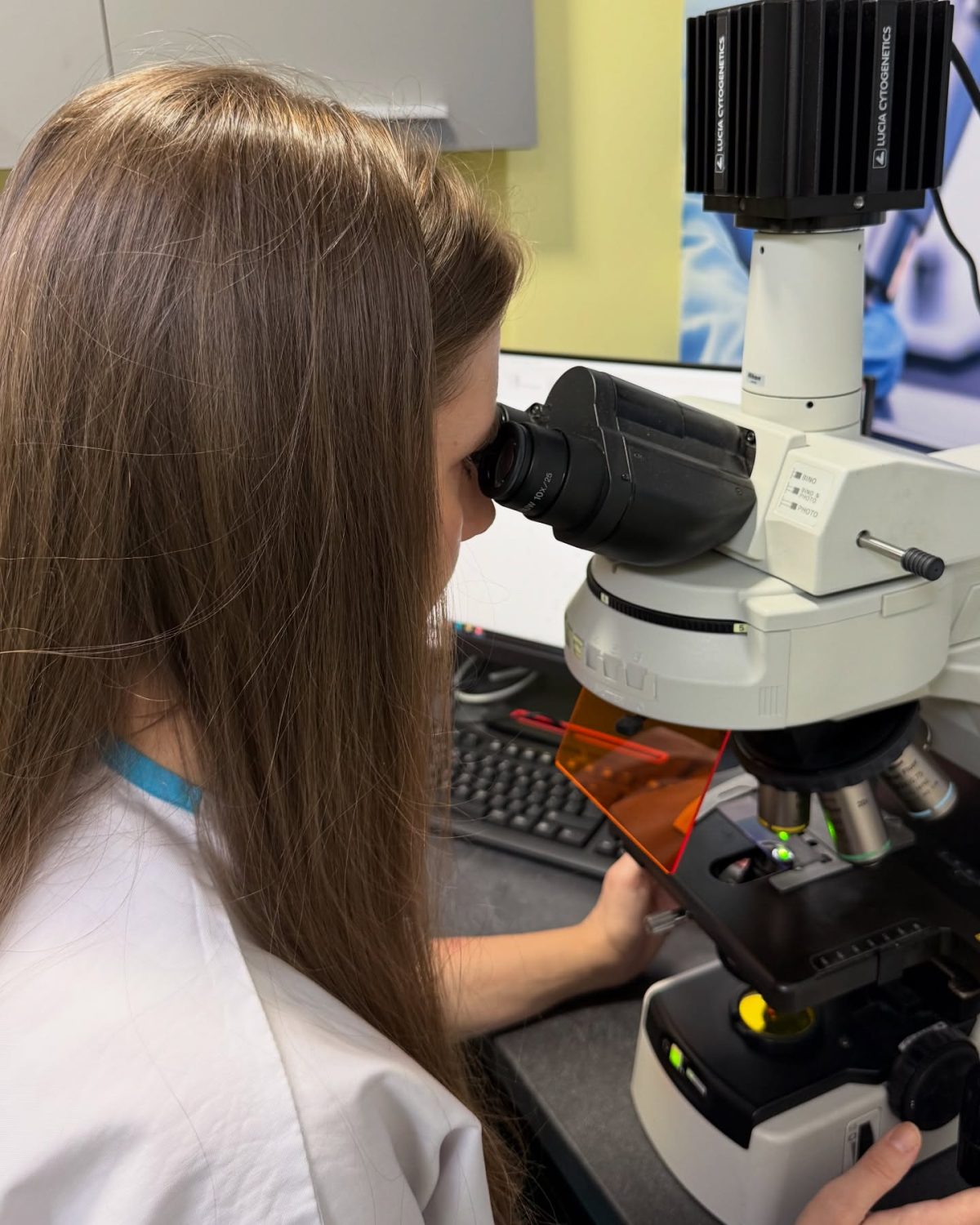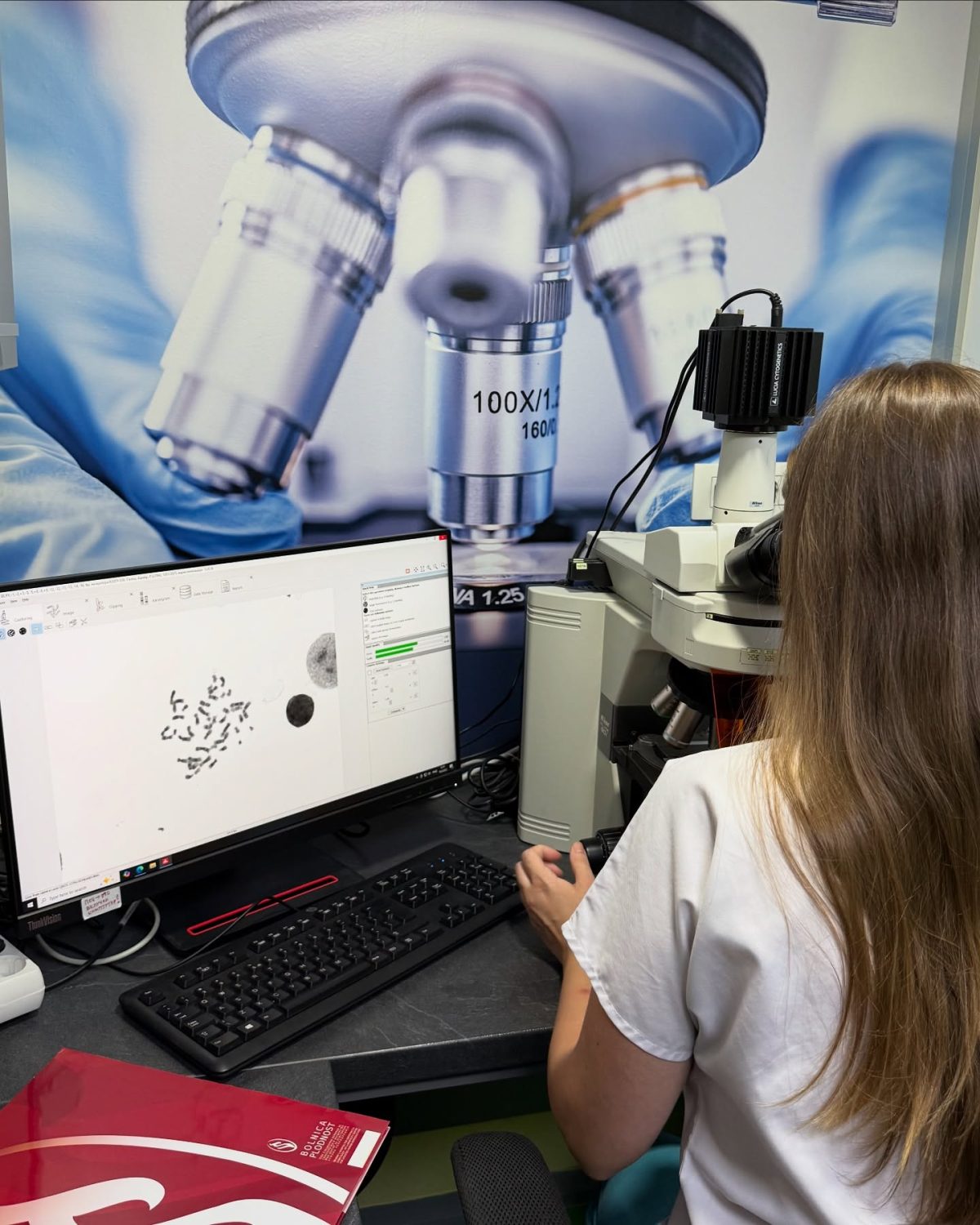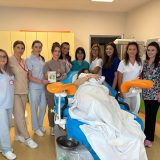Karyotyping: the key to answers in infertility and recurrent miscarriages
29 August 2025

Karyotyping is one of the most important cytogenetic analyses, offering a detailed view of the chromosomal composition of an individual. Using a sample of peripheral blood, the test analyses both the number and structure of chromosomes, helping to detect aneuploidies, translocations, duplications, deletions, and mosaicisms – abnormalities often associated with infertility and recurrent miscarriages.
When karyotyping is recommended
This analysis is a valuable diagnostic tool for:
-
Couples facing infertility – whether primary or secondary
-
Patients with recurrent miscarriages – three or more pregnancy losses
-
Individuals with a family history of genetic abnormalities
-
Patients with clinical symptoms that suggest potential chromosomal issues


Why this test matters
Chromosomal abnormalities are among the most common causes of infertility or failed implantation during IVF treatments. By identifying these issues, doctors can develop personalised treatment plans that significantly improve the chances of achieving a healthy pregnancy.
Karyotyping at Plodnost
At Plodnost Hospital, karyotyping is performed using advanced laboratory techniques, ensuring precise and reliable results. This helps specialists provide targeted recommendations for couples undergoing IVF or other assisted reproductive treatments.
Advances in genetic medicine
Modern genetic medicine goes beyond diagnosis; it also enables risk assessment and proactive planning to support safe and successful pregnancies.



